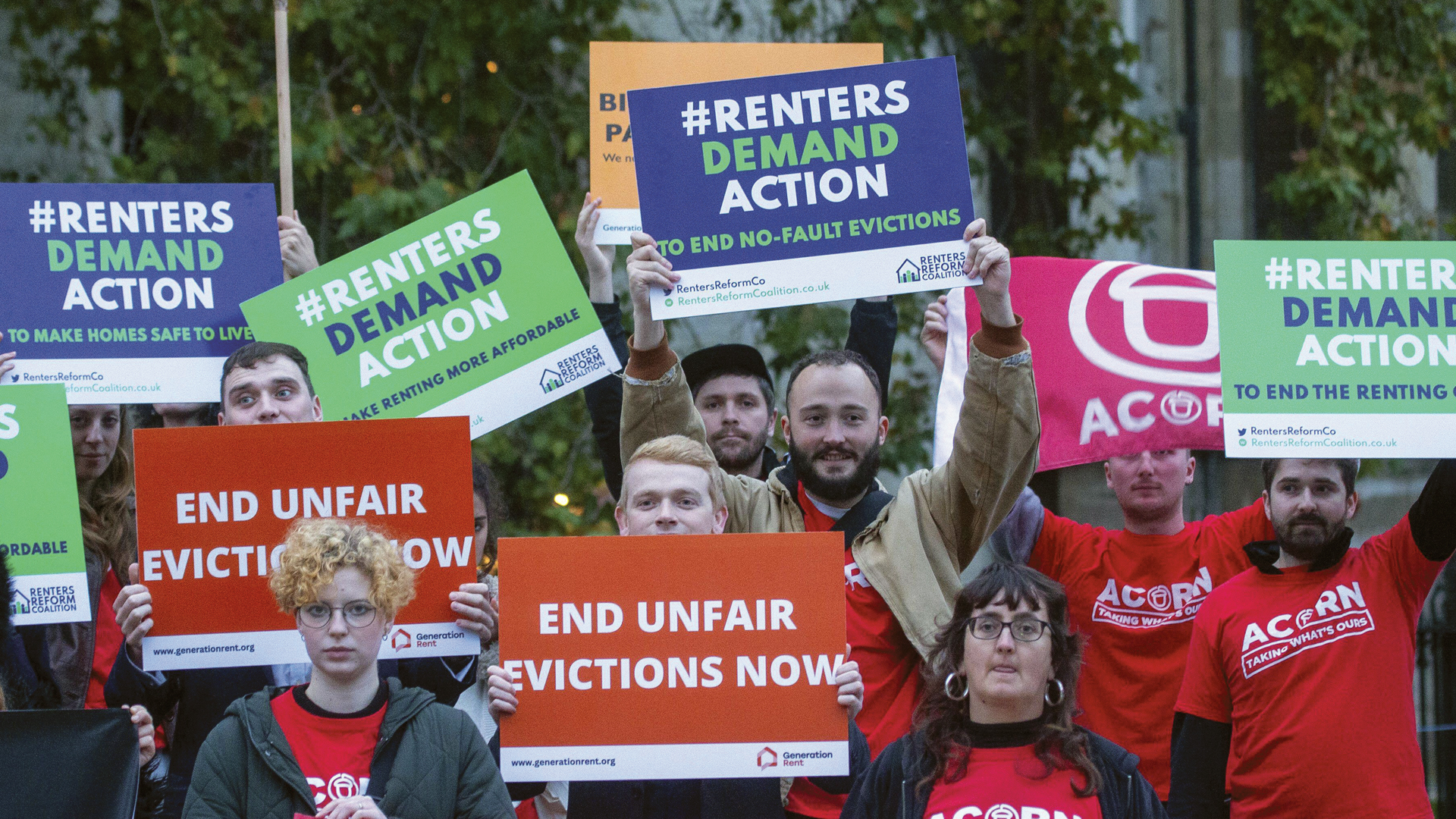Landlords in the cabinet include chancellor Jeremy Hunt – who owns seven rented apartments in Southampton – as well as education secretary Gillian Keegan and justice secretary Alex Chalk.
Additional research from Sky News identified more than 100 MPs who had made over £10,000 as landlords since the current parliament started sitting in 2019 – 83 Tories, 18 Labour, four Lib Dems and one SNP MP.
In 2019, Theresa May promised to axe no-fault evictions, as known as Section 21 evictions, and strengthen the rights of tenants.
Five years – and 26,000 no-fault evictions – later, and it’s still not passed into law.
The bill returns to the commons today (Wednesday April 24), but campaigners have warned that amendments to “bolster landlord protections” have watered down the bill. These include putting the no-fault evictions ban on hold for the foreseeable future by requiring court reforms first.
Landlord associations have welcomed the “balanced” court reform amendments. Ben Beadle, chief executive of the National Residential Landlords Association, said that “the bill delivers a fair deal for tenants and responsible landlords”.
But campaigners aren’t happy. Such a non-specific degree of reform “kicks [the ban] into the long grass,” said Jon Tabbush, senior researcher at Centre for London.
“The bill was meant to fundamentally rebalance the relationship between landlords and tenants,” he said. “At best, it will make incremental improvements – creating a private rented property portal, for example. At worst, it will actively harm tenants’ rights.”
In its current form, the Renters Reform Bill will be a “failure”, according to a Renter’s Reform Coalition statement co-signed by 20 leading housing charities and campaign groups.
“Instead of engaging with us, the bill has been watered down again and again by the government, with several rounds of damaging concessions to backbench MPs that have fundamentally weakened it,” they said.
ACORN, a community union, slammed vested interests for compromising the bill.
“For five years we’ve had promises from the government that they would change this, but after years of feet dragging and with the bill being watered down to appease backbench Tory MPs and landlord lobbyists, it looks like this is an opportunity lost and a promise broken,” spokesperson Martin Mawdsley said.
The true figure of MPs who are also landlords may be higher than the 38 Degrees analysis suggests, as MPs only have to declare rental income of more than £10,000 per year.
A further 30 MPs owned declarable residential property worth more than £100,000 in England but with no declarable rental income – it is possible that some of these properties may bring in rent of less than £10,000 per year.









